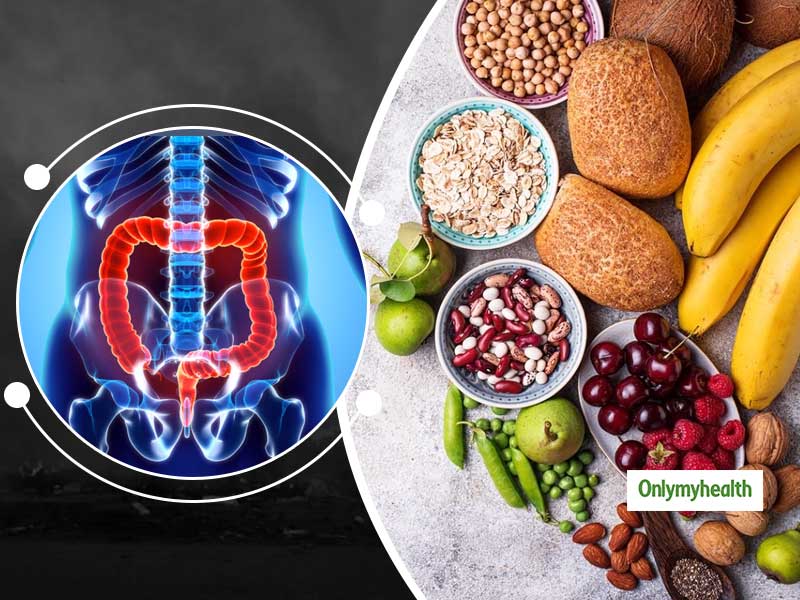
In India, colorectal cancer is 7th most occurring cancer. It has multiple causes and is a complex condition. Factors which contribute to the occurrence of colon cancer include having a sedentary lifestyle, obesity, consuming tobacco, low fibre diet and high alcohol consumption. Those who are over 60 years of age, have a positive family history of colorectal cancer and have familial polyposis syndrome are at more of a risk of suffering from colorectal cancer. To screen effectively, colonoscopies are recommended starting from the age of 50. It should be done every ten years to ensure that the results are normal.
Table of Content:-

High-Fibre Diet And Colon Cancer
A diet which is high in fibre is associated with a reduced risk of colorectal cancer. This is because fibres allow for a decrease in the gastrointestinal transit time, dilution of faecal carcinogens, increasing stool bulk and, causing bacterial fermentation of fibre to short-chain fatty acids with anti-carcinogenic properties. Initially, colonic adenomas (polyps) are formed, which may progress to become cancer in some individuals. Individuals consuming the highest intakes of dietary fibre may have reduced risks of developing colorectal adenoma and colon cancer. This effect of dietary fibre, particularly from cereals and fruit, may begin early in colorectal carcinogenesis. Dietary fibre may act early in the adenoma-carcinoma sequence and reduce both the risk of adenoma and cancer.
Also Read: Sugary Drinks Including 100% Fruit Juices May Increase Cancer Risk, Says Dr Choudhury
The Various Kinds Of Fibre

Dietary fibre is non-starch complex carbohydrates which are found in plant foods. They are of 2 types: soluble and insoluble. Non-vegetarian diet does not have fibres.
Soluble fibre dissolves in water to form a gel, which promotes delayed emptying and early satiety. Soluble fibres are easily digested in the colon, which can cause bloating and gas. Soluble fibre is often associated with cardiovascular and diabetes prevention by reducing blood cholesterol and glucose levels. It does this in 2 ways. Firstly, the soluble fibre is fermented to the short-chain fatty acids. These are absorbed and metabolized by the liver for bile synthesis. Second, fibre passes through the body undigested. Soluble-fibre sources include apples, barley, citrus fruits, peas, avocado, husks, legumes, oats, rye, and many vegetables, such as broccoli and carrots.
Insoluble fibre does not dissolve in water and non-fermentable leads to no bleeding. It promotes bowel movements by adding bulk and water to stool, creating a stool softening action in the digestive system. Insoluble-fibre sources include brown rice, fruits like apples, legumes, seeds, whole grains, vegetables such as Brussels sprouts and cabbage, and wheat bran.
Also Read: Air Pollution Can Lead To Lung Cancer, Says This Senior Oncologist
Colon Cancer Happens Gradually

Colon cancer does not happen overnight. Usually, it can take many years to develop. So, starting to eat whole grains in early age is essential. Eating more whole grains has other health benefits like reduced cholesterol levels, better blood sugar levels and less constipation. Fibre slows the absorption of carbohydrates, reducing insulin levels. It also binds bile acids, lowering blood levels of LDL (bad) cholesterol. When a high-fibre diet includes lots of fruit and vegetables, it helps to lower blood pressure. Fibre could reduce exposure of the colorectal passage to carcinogenic N-nitroso compounds produced on processed meat consumption. Drink plenty of water, as staying hydrated will help ensure that the additional fibre doesn’t cause stomach problems.
With inputs from Dr Pradeep Jain, Director, Laparoscopic, Gastrointestinal, Bariatric & Metabolic Surgery, General and Laparoscopic Surgery, Bariatric & Metabolic Surgery, GI Oncosurgery, Medical Oncology, Fortis Hospital, Shalimar Bagh
Read more articles on Cancer
How we keep this article up to date:
We work with experts and keep a close eye on the latest in health and wellness. Whenever there is a new research or helpful information, we update our articles with accurate and useful advice.
Current Version
